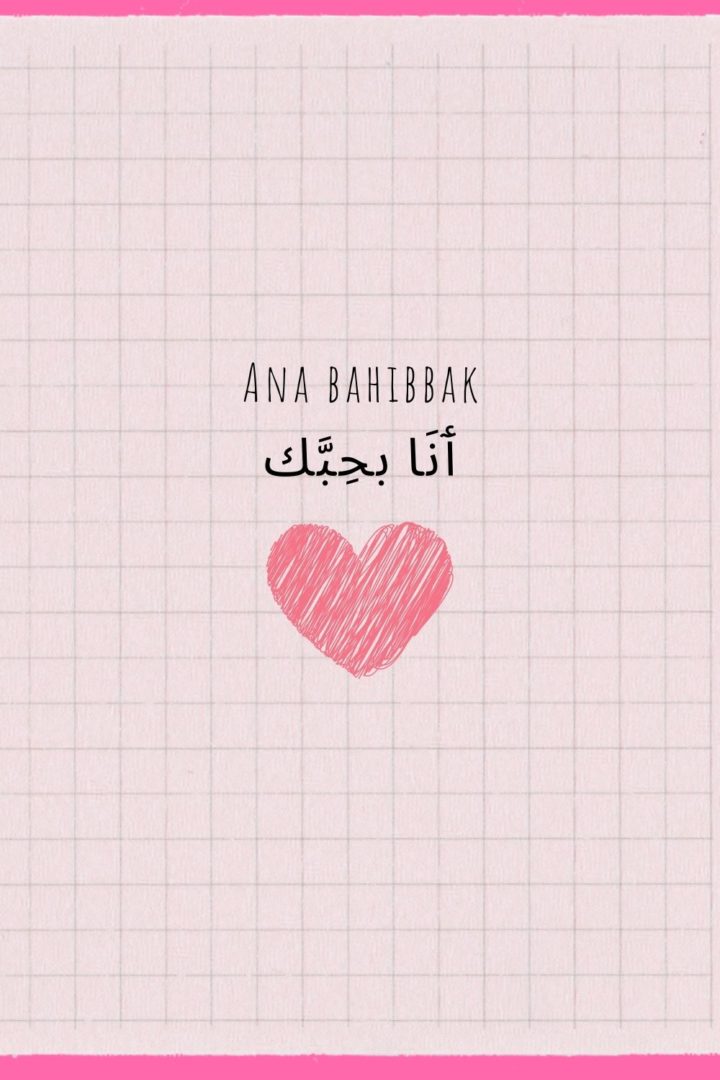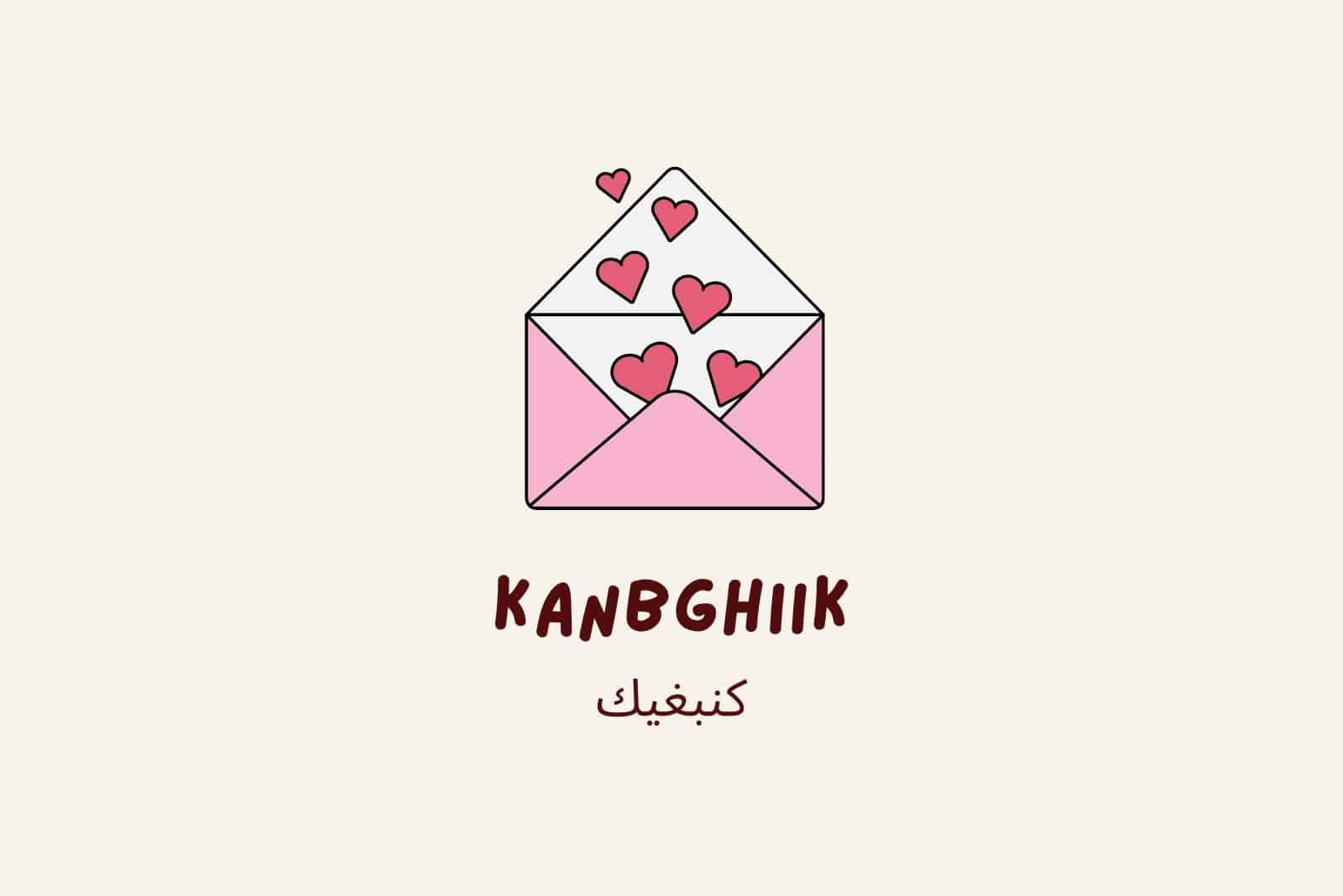How To Say "Je T'aime" In Moroccan Arabic: A Love Language Guide
Have you ever wondered how to express "je t'aime" in Moroccan Arabic? Love knows no boundaries, and learning how to say "I love you" in a different language can create unforgettable moments. Whether you're traveling to Morocco or simply want to impress someone special, this article will guide you through the magic of Moroccan expressions of love. So grab a coffee, sit back, and let's dive into this romantic journey!
There’s something special about saying "I love you" in another language. It adds depth, emotion, and a touch of mystery to any relationship. Moroccan Arabic, also known as Darija, has its own unique way of expressing love. We’ll explore not only the words but also the cultural nuances behind them so you can truly connect with the people and traditions of Morocco.
In this article, we’ll cover everything from pronunciation tips to cultural insights. By the end, you’ll feel confident expressing your love in Moroccan Arabic. So, are you ready to learn how to say "je t'aime" Moroccan-style? Let’s get started!
- Anne Burrell Husband Net Worth Wedding Details You Need To Know
- Understanding Henning Wehns Waardenburg Syndrome
Table of Contents
- What Does "Je T'aime" Mean in Moroccan Arabic?
- The History of Moroccan Arabic Love Expressions
- How to Pronounce "Je T'aime" in Moroccan Arabic
- Different Variations of "I Love You" in Moroccan Arabic
- Cultural Significance of Saying "I Love You" in Morocco
- Tips for Using Romantic Phrases in Moroccan Arabic
- Common Love Phrases in Moroccan Arabic
- Etiquette Around Expressing Love in Morocco
- Practical Tips for Learning Moroccan Arabic
- Conclusion: Why Learning "Je T'aime" in Moroccan Arabic Matters
What Does "Je T'aime" Mean in Moroccan Arabic?
Alright, let’s start with the basics. "Je t'aime" is French for "I love you." But in Morocco, where both French and Arabic are widely spoken, people often mix the two languages in casual conversations. If you’re looking for the Moroccan Arabic equivalent of "je t'aime," it’s "Ana bghiti fiik" (أنا بغيتك فيك). This phrase translates to "I want you for myself," which carries a deep sense of love and devotion.
In Moroccan Arabic, expressions of love tend to be more poetic and heartfelt compared to other languages. The phrase "Ana bghiti fiik" is widely used and understood across Morocco. It’s important to note that while Moroccan Arabic shares similarities with Modern Standard Arabic, it has its own distinct dialect and vocabulary.
Now, let’s break down the phrase: "Ana" means "I," "bghiti" means "I want," and "fiik" means "you" (in a romantic sense). Together, they form a beautiful declaration of love. But don’t worry if you’re not fluent in Moroccan Arabic yet—we’ve got plenty of tips and resources to help you master this phrase!
The History of Moroccan Arabic Love Expressions
Love has been a central theme in Moroccan culture for centuries. From ancient Berber poetry to modern-day songs, expressions of love have evolved alongside the country’s rich history. Moroccan Arabic, or Darija, reflects this evolution by incorporating elements from various languages, including Arabic, French, and Spanish.
Historically, love poetry played a significant role in Moroccan society. Poets would write verses celebrating the beauty of love and nature, often using metaphors and symbolic language. These poems were not only artistic but also served as a way to express emotions that might have been considered taboo in everyday conversations.
In contemporary Morocco, love expressions have become more direct, especially among younger generations. However, the poetic essence remains, adding a unique charm to phrases like "Ana bghiti fiik." Understanding the historical context of these expressions can deepen your appreciation for the language and culture.
How to Pronounce "Je T'aime" in Moroccan Arabic
Let’s talk pronunciation. Getting the sounds right is crucial when learning a new language, especially one as melodic as Moroccan Arabic. Here’s a quick guide to help you pronounce "Ana bghiti fiik" correctly:
- Ana: Pronounced like "ah-nah."
- Bghiti: Sounds like "beh-gee-tee."
- Fiik: Pronounced "fee-eek," with a soft "k" sound.
Remember, Moroccan Arabic is spoken rather than written, so don’t stress too much about perfecting every sound. As long as you’re sincere, most Moroccans will appreciate your effort. And hey, mistakes are part of the learning process!
Different Variations of "I Love You" in Moroccan Arabic
While "Ana bghiti fiik" is the most common way to say "I love you," there are other variations you can use depending on the context. Here are a few examples:
- Ana mabghitch hadak: "I only love you."
- Ashtak: "I miss you" (a romantic way to express longing).
- Anti hibti: "You are my love" (used specifically for women).
- Anta hibbi: "You are my love" (used specifically for men).
These variations allow you to tailor your expressions based on the relationship and level of intimacy. Experiment with them to find what feels right for you!
Cultural Significance of Saying "I Love You" in Morocco
In Morocco, expressing love is deeply tied to cultural values. While direct declarations of love are becoming more common, especially in urban areas, there’s still a sense of modesty and respect that accompanies such expressions. Love is often expressed through actions rather than words, making it even more meaningful when someone says "Ana bghiti fiik."
Cultural norms around love and relationships vary across regions in Morocco. In rural areas, public displays of affection may be frowned upon, while in cities like Casablanca or Marrakech, couples are more open about their feelings. Understanding these nuances can help you navigate romantic interactions with sensitivity and respect.
Additionally, family plays a vital role in Moroccan relationships. Before expressing love, it’s common for couples to seek approval from their families, especially in traditional settings. This highlights the importance of community and shared values in Moroccan culture.
Tips for Using Romantic Phrases in Moroccan Arabic
Ready to spice up your love life with some Moroccan flair? Here are a few tips for using romantic phrases effectively:
- Be sincere: Authenticity goes a long way. Use these phrases genuinely to convey your feelings.
- Learn the context: Understand when and where it’s appropriate to express love. Timing is everything!
- Practice makes perfect: Don’t be afraid to practice saying these phrases out loud. The more comfortable you are, the more natural it will sound.
- Combine words with actions: Back up your words with meaningful gestures. A heartfelt message paired with a thoughtful gift can leave a lasting impression.
Remember, love transcends language barriers. Even if your pronunciation isn’t perfect, the effort you put into learning Moroccan Arabic will be appreciated by your loved one.
Common Love Phrases in Moroccan Arabic
Let’s expand your vocabulary with some common love phrases in Moroccan Arabic:
- Anti nura ya hibti: "You are my light, my love."
- Ashtak l kol wa makandhsh: "I miss you more than words can express."
- Ana mabghitch ghirik: "I only love you."
- Anta hadi l hibbi li mabghiwinshi: "You are the only love I will ever have."
These phrases can add depth to your conversations and make your expressions of love even more impactful. Mix and match them to create your own unique love language!
Etiquette Around Expressing Love in Morocco
When it comes to expressing love in Morocco, etiquette matters. Here are a few things to keep in mind:
- Respect privacy: Public displays of affection are generally avoided, especially in more conservative areas.
- Consider cultural differences: What might seem romantic in one culture could be seen differently in another. Take the time to understand Moroccan customs and traditions.
- Be patient: Building trust and intimacy takes time. Allow relationships to develop naturally without rushing things.
- Show gratitude: Expressing gratitude is an important part of Moroccan culture. Thank your loved ones for their kindness and support.
By following these guidelines, you can ensure that your expressions of love are well-received and appreciated.
Practical Tips for Learning Moroccan Arabic
Learning Moroccan Arabic may seem daunting at first, but with the right approach, it can be a fun and rewarding experience. Here are some practical tips to help you get started:
- Focus on key phrases: Start with essential phrases like greetings, introductions, and expressions of love.
- Listen to native speakers: Watch Moroccan movies, listen to music, or engage in conversations with locals to improve your listening skills.
- Use language apps: Apps like Duolingo or Memrise offer courses in Moroccan Arabic and can supplement your learning.
- Practice regularly: Consistency is key. Set aside time each day to practice speaking, writing, and listening.
Remember, learning a language is a journey. Celebrate your progress along the way and don’t be discouraged by setbacks. Every step brings you closer to mastering Moroccan Arabic!
Conclusion: Why Learning "Je T'aime" in Moroccan Arabic Matters
Learning how to say "je t'aime" in Moroccan Arabic opens up a world of possibilities. It allows you to connect with people on a deeper level, appreciate the richness of Moroccan culture, and express your love in a meaningful way. Whether you’re traveling to Morocco or simply want to impress someone special, mastering this phrase can create unforgettable memories.
So, what are you waiting for? Start practicing today and let the magic of Moroccan Arabic transform the way you express love. And don’t forget to share your experiences in the comments below—we’d love to hear from you!
Until next time, stay curious, keep learning, and remember: "Ana bghiti fiik."



Detail Author:
- Name : Anibal Dibbert
- Username : charlotte27
- Email : marlon20@yahoo.com
- Birthdate : 1984-11-19
- Address : 54176 Rhiannon Manors Clarkland, LA 67513
- Phone : 1-845-530-8916
- Company : Corkery-Willms
- Job : Producer
- Bio : Recusandae omnis pariatur odit enim. Ut laudantium ducimus consequatur quo et voluptate non. Minima sit cupiditate non. Accusamus odit laboriosam sed veritatis reiciendis quae voluptate.
Socials
linkedin:
- url : https://linkedin.com/in/novellamacejkovic
- username : novellamacejkovic
- bio : Dolore autem aperiam mollitia ut et beatae.
- followers : 3910
- following : 880
twitter:
- url : https://twitter.com/nmacejkovic
- username : nmacejkovic
- bio : Vitae quibusdam repellat fuga quo officiis in. Qui natus quam odit. Eum rerum magnam laboriosam velit at aut.
- followers : 3557
- following : 450
facebook:
- url : https://facebook.com/nmacejkovic
- username : nmacejkovic
- bio : Quos placeat necessitatibus est debitis.
- followers : 2067
- following : 368
instagram:
- url : https://instagram.com/macejkovic1971
- username : macejkovic1971
- bio : Qui fuga hic dolores asperiores. Delectus qui modi in et magnam dicta. Qui et sit dicta est.
- followers : 132
- following : 347